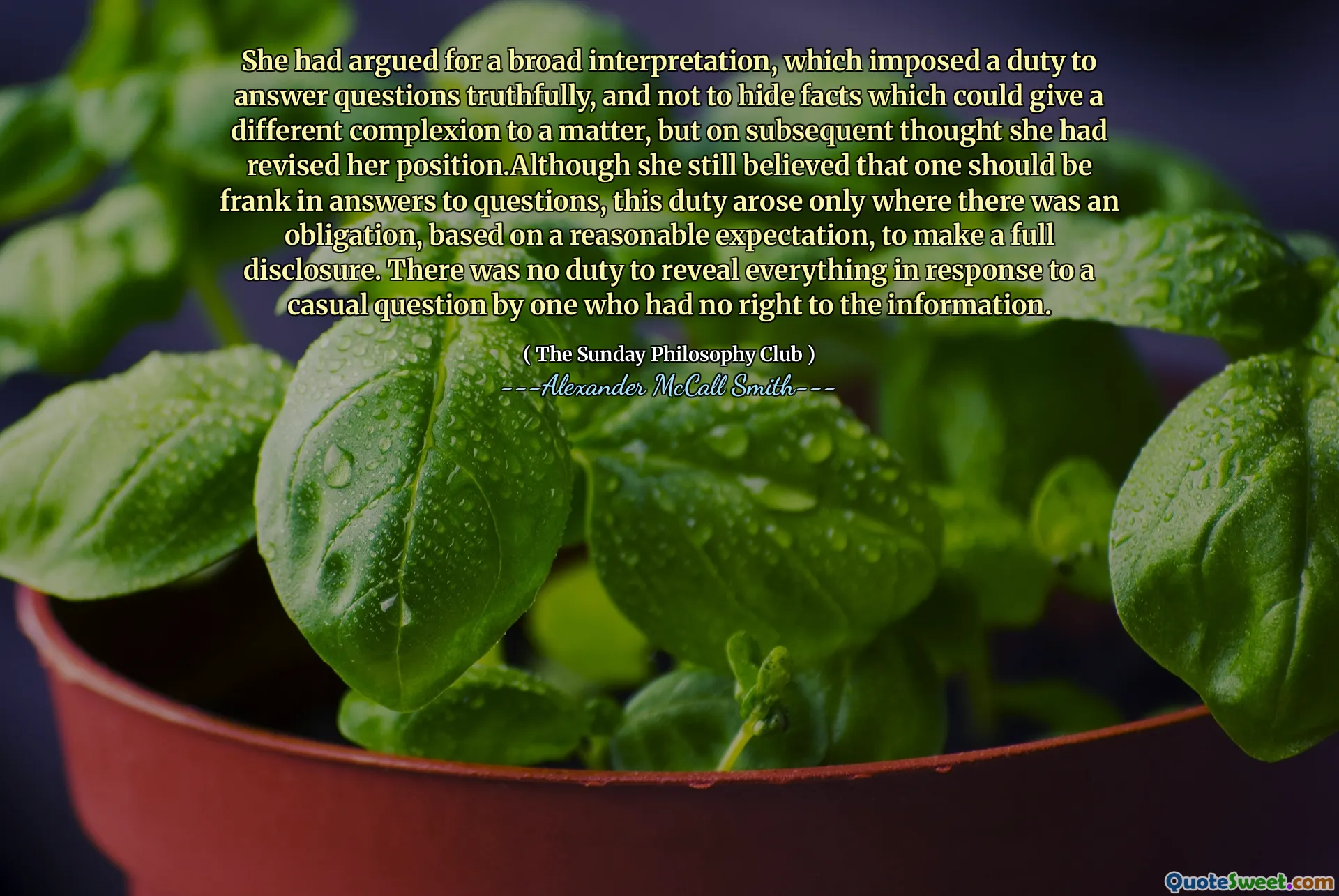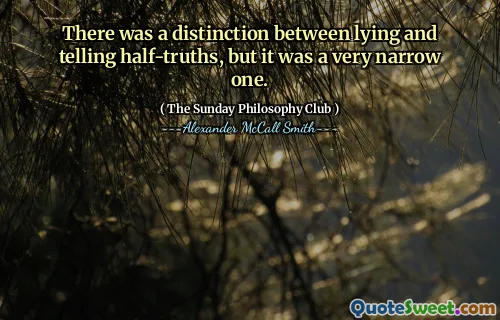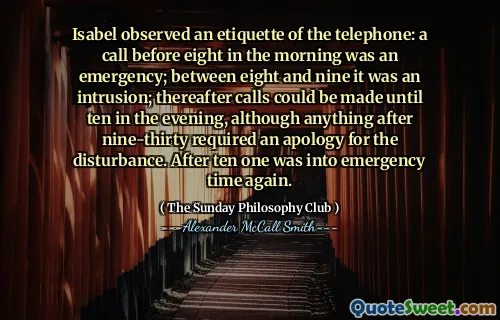
She had argued for a broad interpretation, which imposed a duty to answer questions truthfully, and not to hide facts which could give a different complexion to a matter, but on subsequent thought she had revised her position.Although she still believed that one should be frank in answers to questions, this duty arose only where there was an obligation, based on a reasonable expectation, to make a full disclosure. There was no duty to reveal everything in response to a casual question by one who had no right to the information.
The character in "The Sunday Philosophy Club" initially held a strong belief that individuals should provide truthful answers and avoid concealing facts that could alter interpretations of a situation. She advocated for a comprehensive understanding of truthfulness, arguing for a broad duty of disclosure in communication. However, upon further reflection, her viewpoint shifted.
While she maintained the importance of honesty, she recognized that the obligation to fully disclose information only applies when there is a reasonable expectation for such transparency. In casual inquiries where the questioner lacks a legitimate right to the information, the obligation to disclose may not apply, signifying a nuanced understanding of ethical communication.






